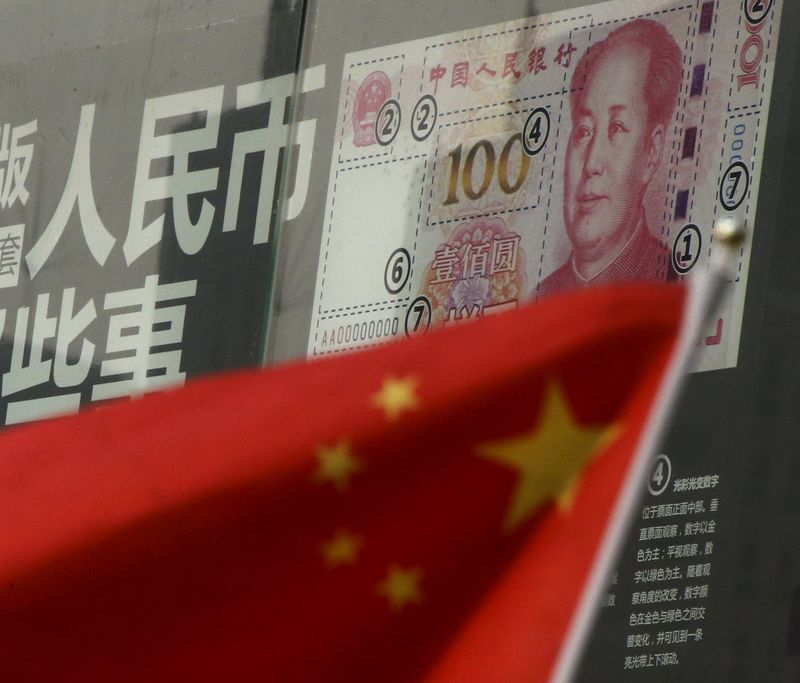(Corrects year to 2016 in paragraph 2)
By Sujata Rao and Vincent Flasseur
LONDON, March 23 (Reuters) - China is engineering a steady depreciation of its yuan in a move that has gone largely unnoticed because its weakness this year has come against the currencies of trading partners rather than the dollar.
Emerging currencies have broadly strengthened in 2016, the rally accelerating since end-January as it became clear U.S. rates would rise less rapidly than previously expected, capping dollar gains. The yuan is flat in 2016 to the dollar CNY= .
But it has depreciated almost 3 percent in nominal effective exchange rate (NEER) or trade-weighted terms, while most other emerging currencies have appreciated -- some, such as the rouble, by as much as 7 percent, the following chart slows:
http://reut.rs/1Rg2Hcj
"(Yuan) is one of the worst performing on a trade-weighted basis this year. It has passed underneath the radar but it's noteworthy that (China has) used the opportunity to keep the currency depreciating," said Kamakshya Trivedi, Goldman Sachs (NYSE:GS)' managing director for emerging markets research.
China launched a trade-weighted yuan exchange rate index in December, aiming to loosen links to the dollar, and has held the dollar/yuan rate mostly steady at its daily fixings this year.
Trivedi said the real test would come when the dollar resumes its appreciation.
"What I take away from that is if we see dollar strength come back at some point, they won't let the trade-weighted depreciation reverse and you may start to see dollar/yuan fix higher," he added.
The yuan rose around 30 percent in nominal terms between 2005 and 2015 before a sudden devaluation last August. Many reckon Beijing will again try to weaken its currency to counter slowing growth and exports.
The depreciation in trade-weighted terms could become a source of worry for other Asian and emerging economies. After the United States and Germany, China trades most with Japan, Australia, Hong Kong, Malaysia, Taiwan, Brazil and Russia.
But unlike last year when yuan weakness sparked fears about competitive devaluations, there has been little reaction.
"The market is obsessed with watching dollar/yuan fixings. But China ... are achieving the same depreciation without roiling markets or exacerbating capital flight," UBS strategist Manik Narain said.
"They want to give back some of the real appreciation they accumulated in the past few years."
Continued depreciation will make China's Asian trade partners uneasy, forcing them to curb their currencies' gains through interventions and interest rate cuts, Narain predicted. (Graphic by Vincent Flasseur; Editing by Catherine Evans)
